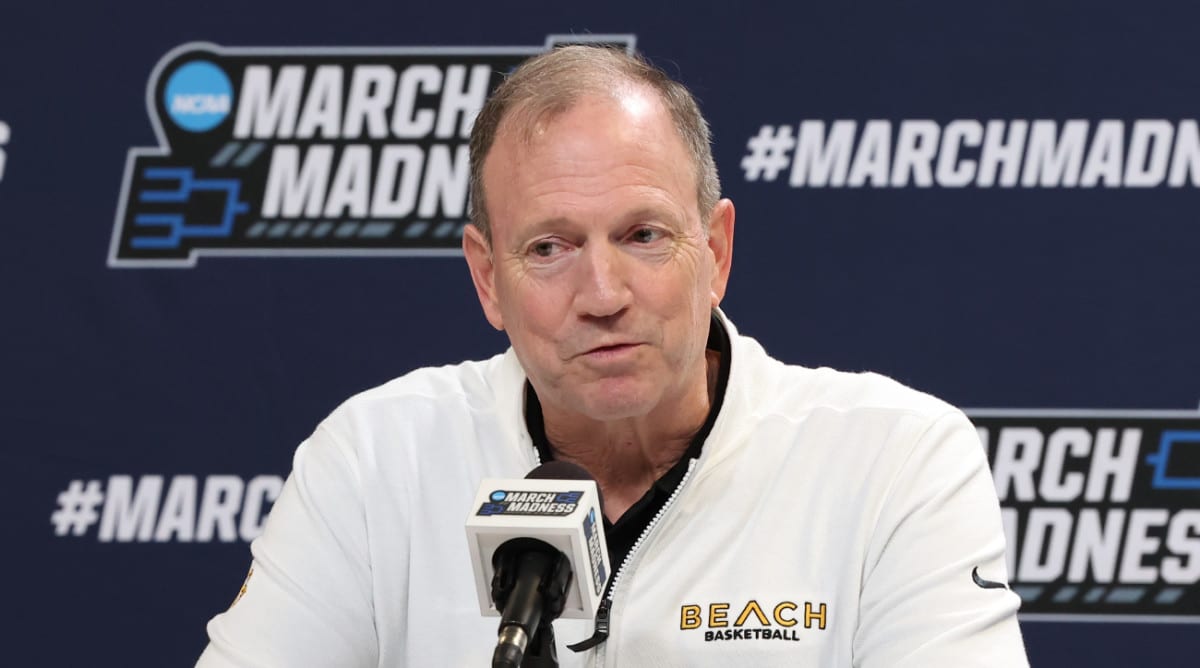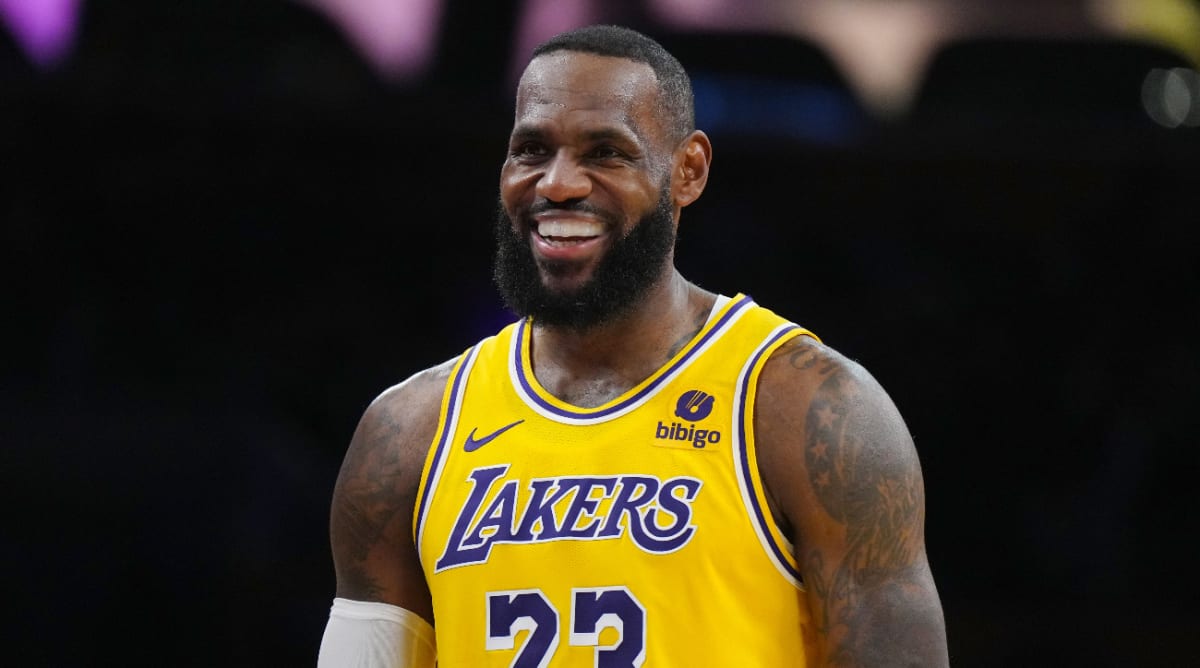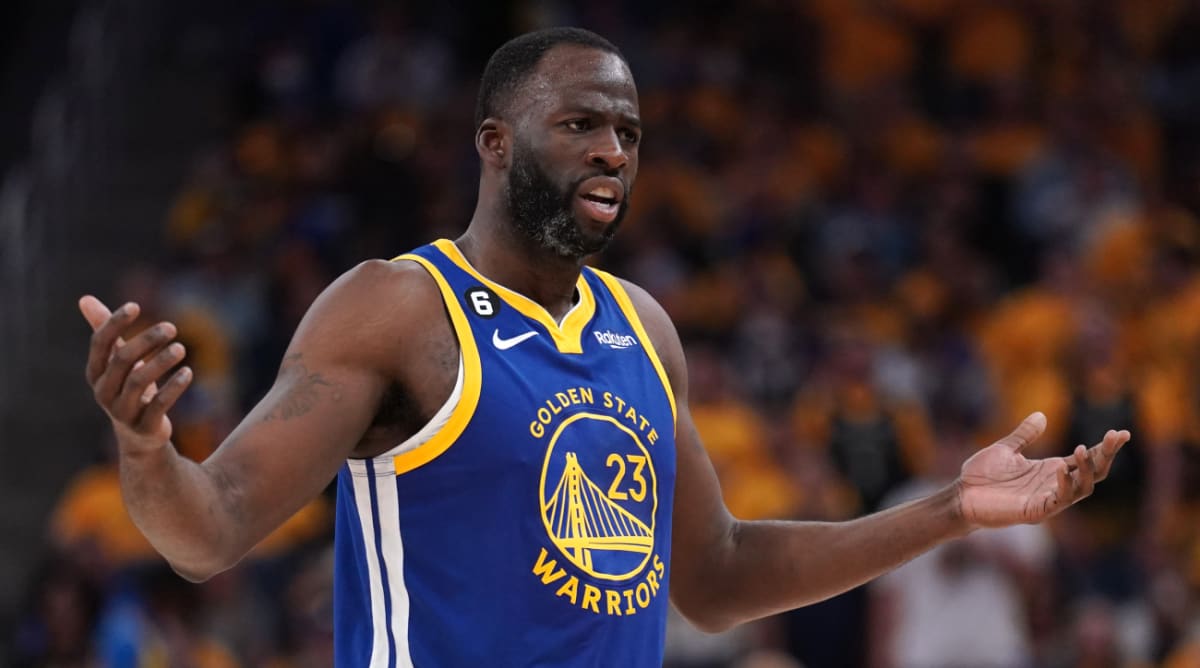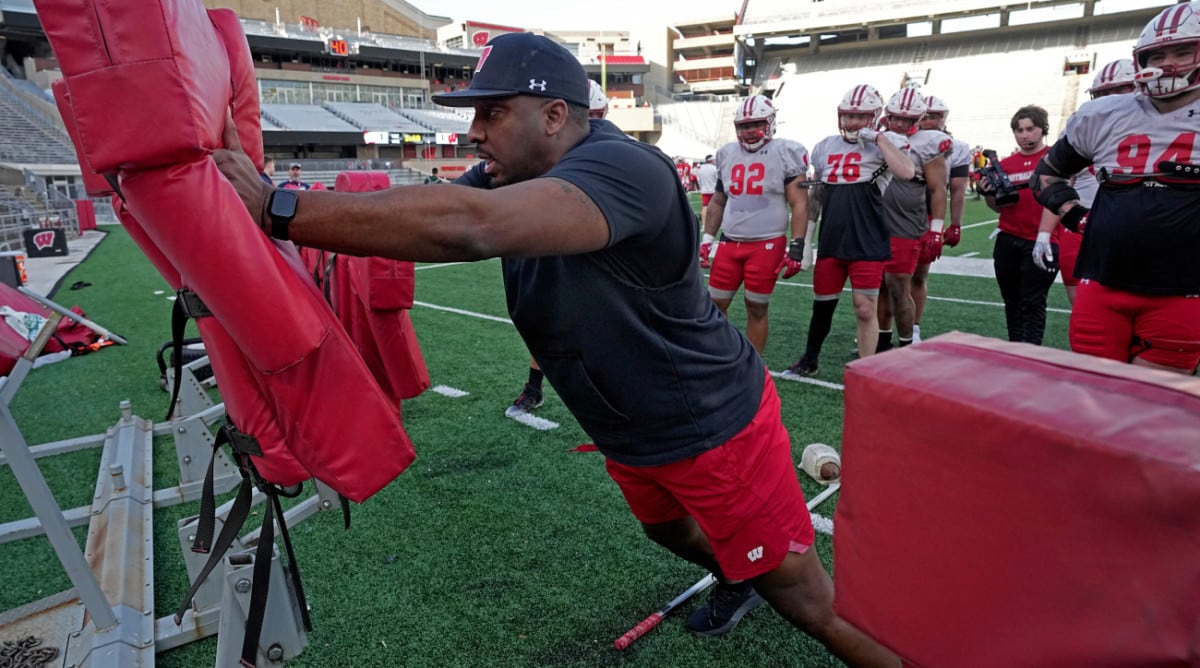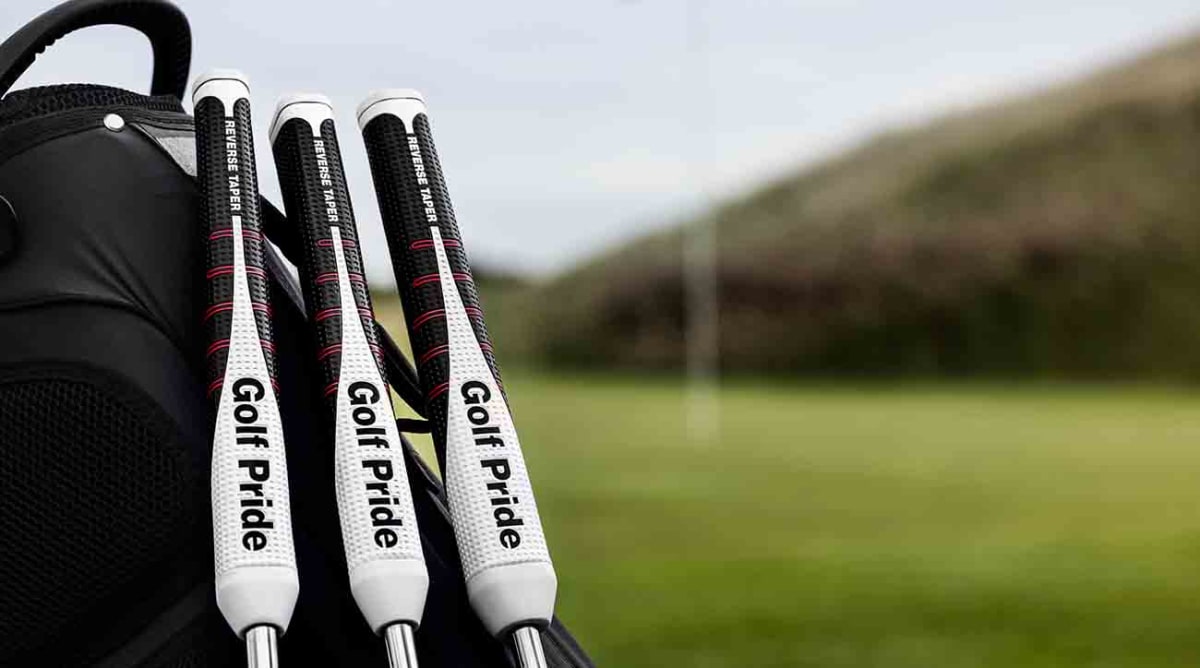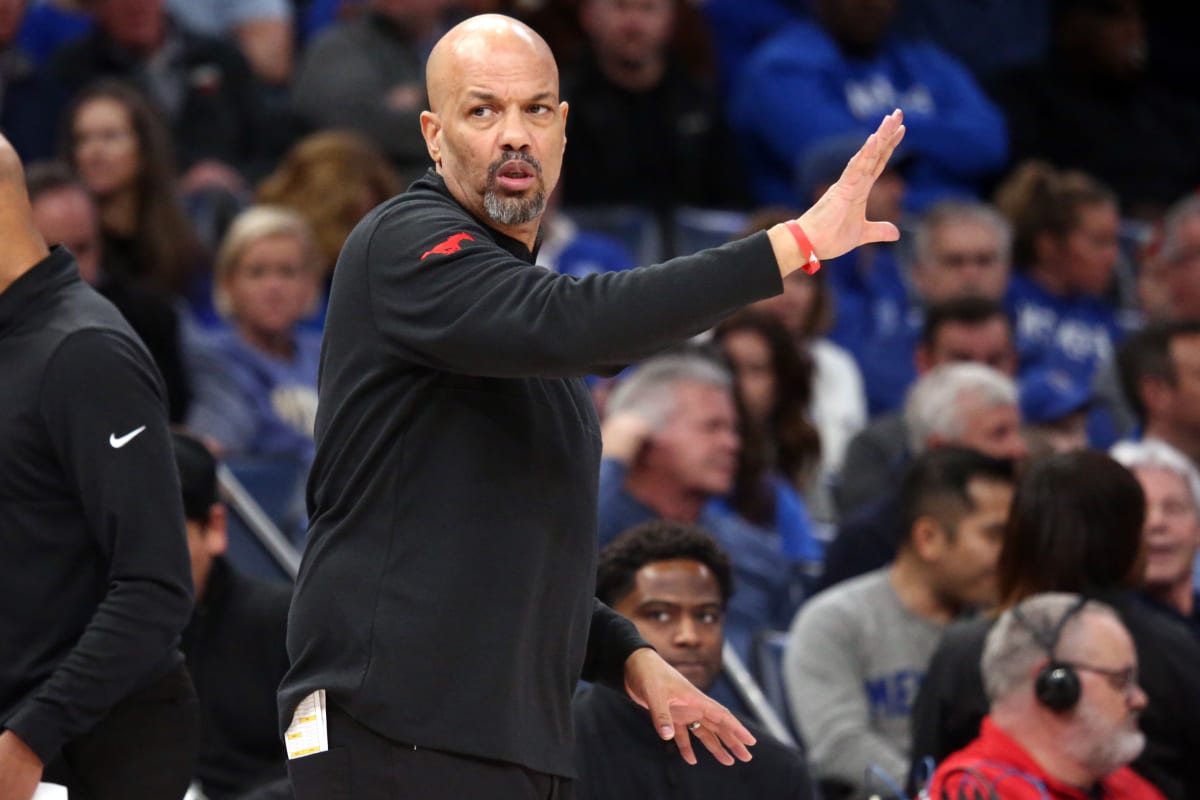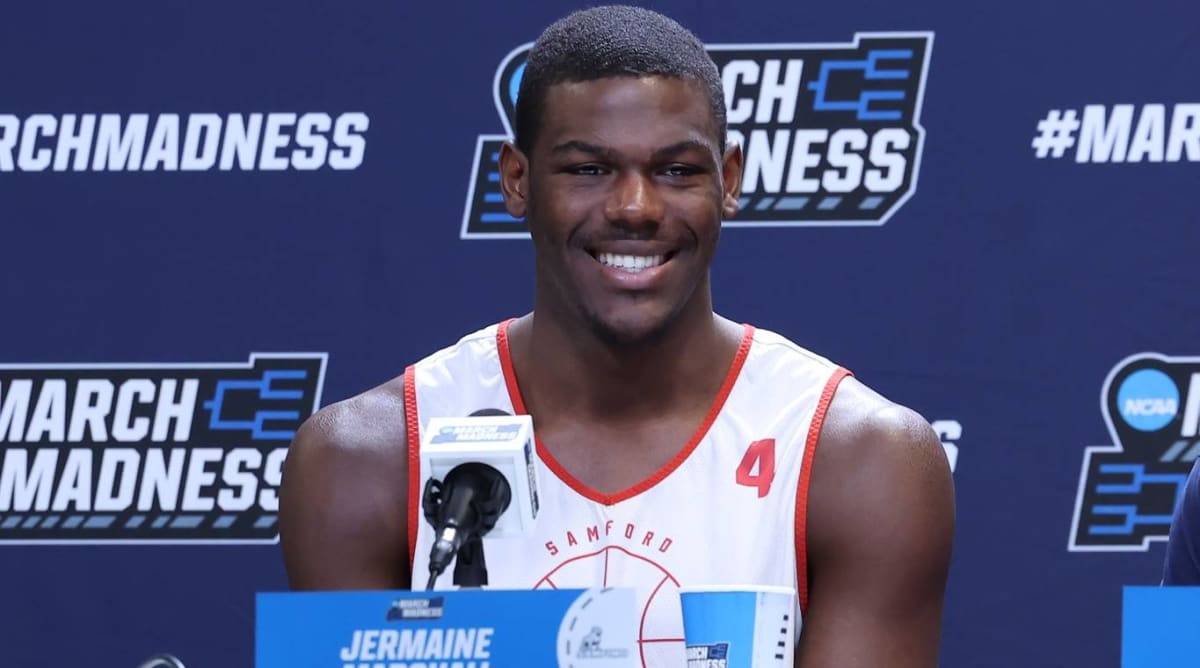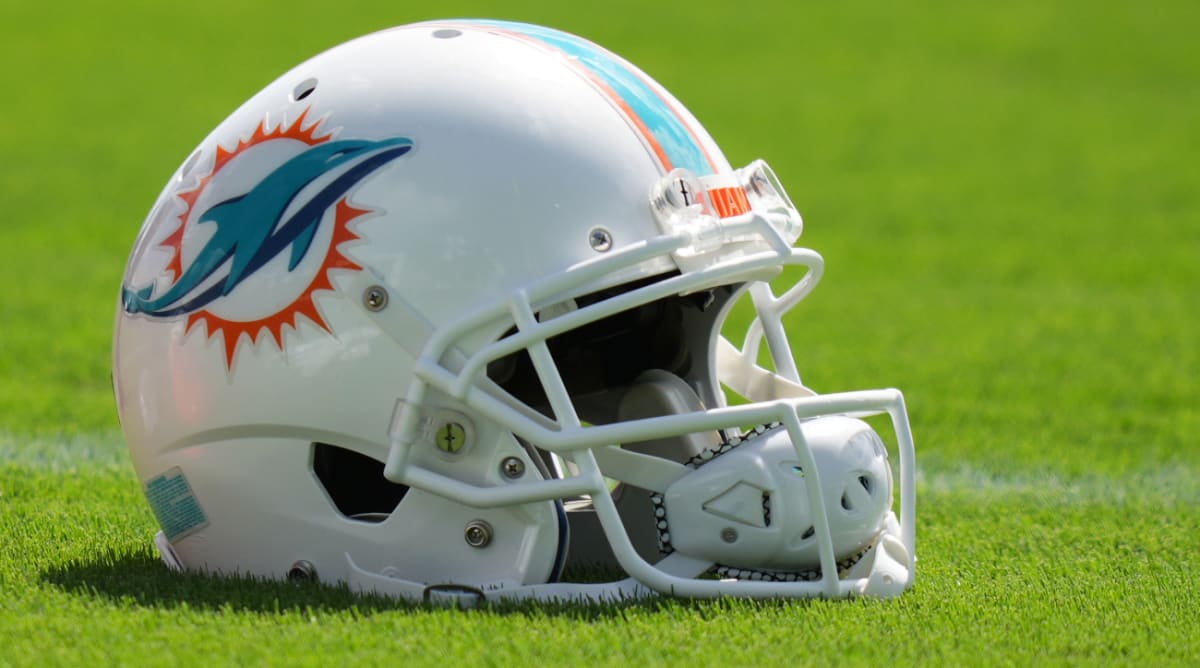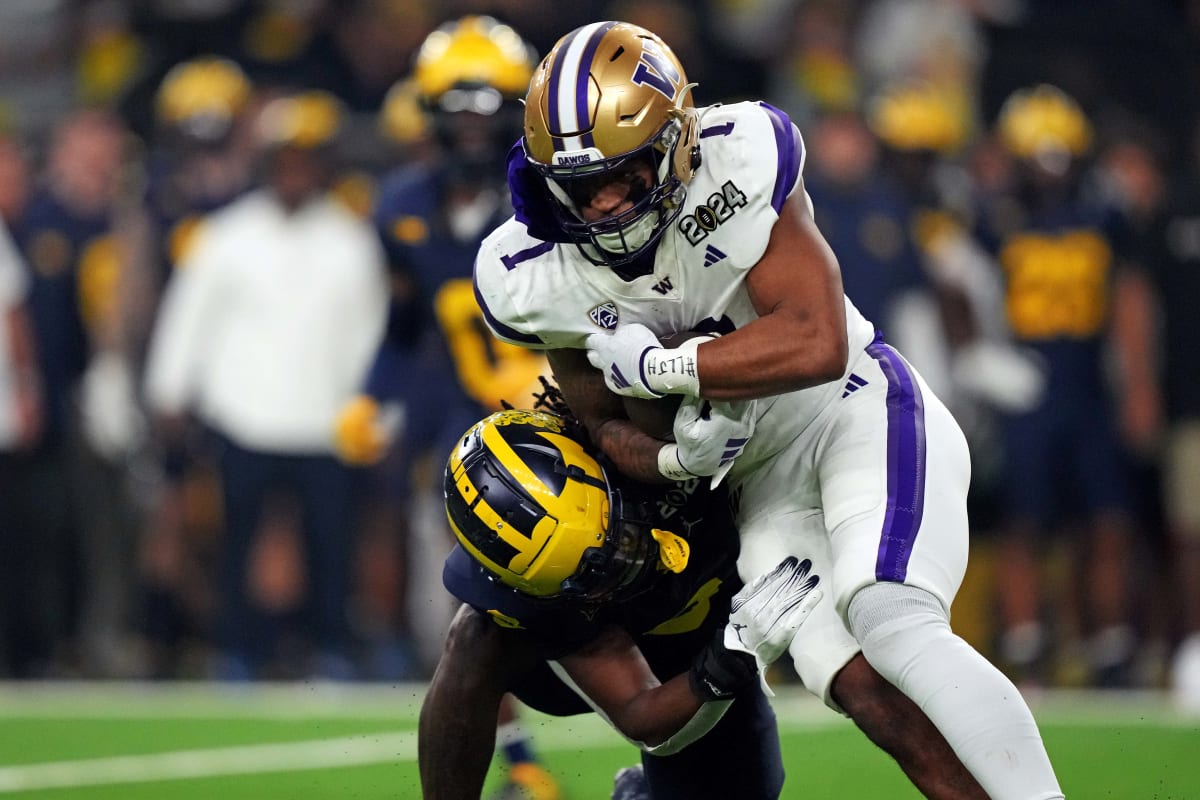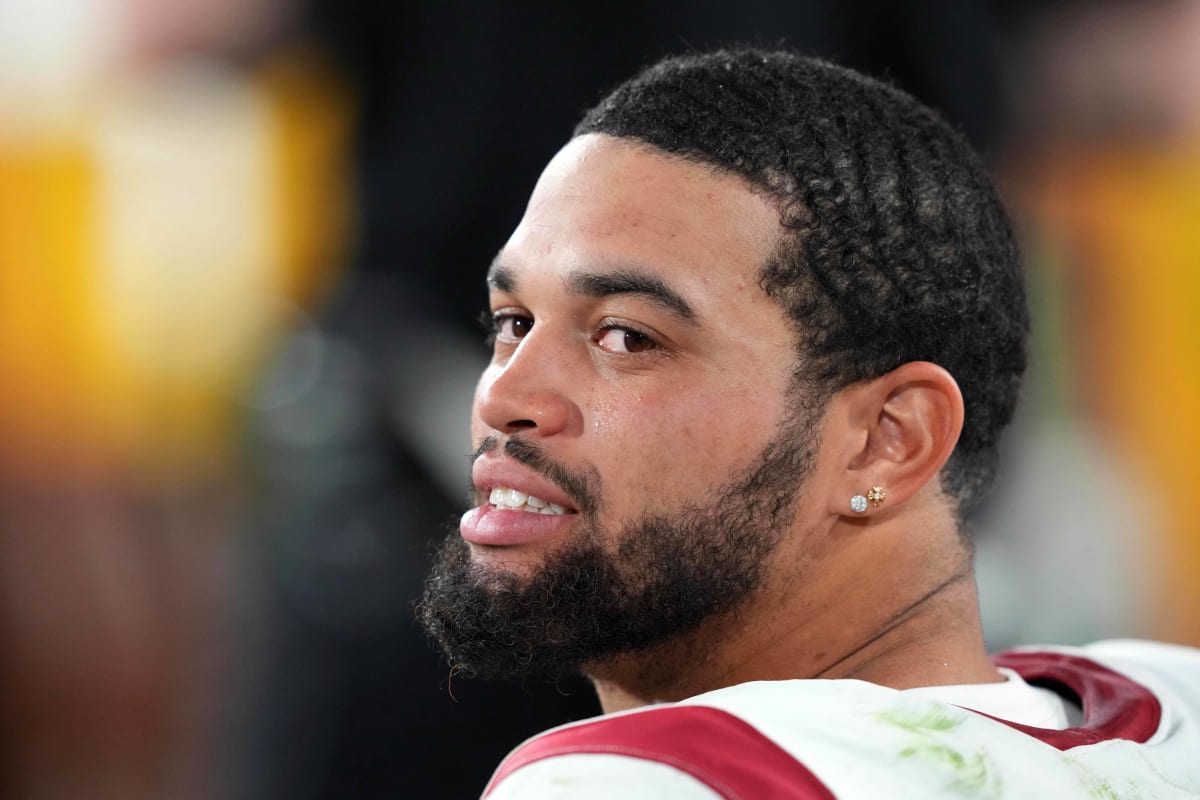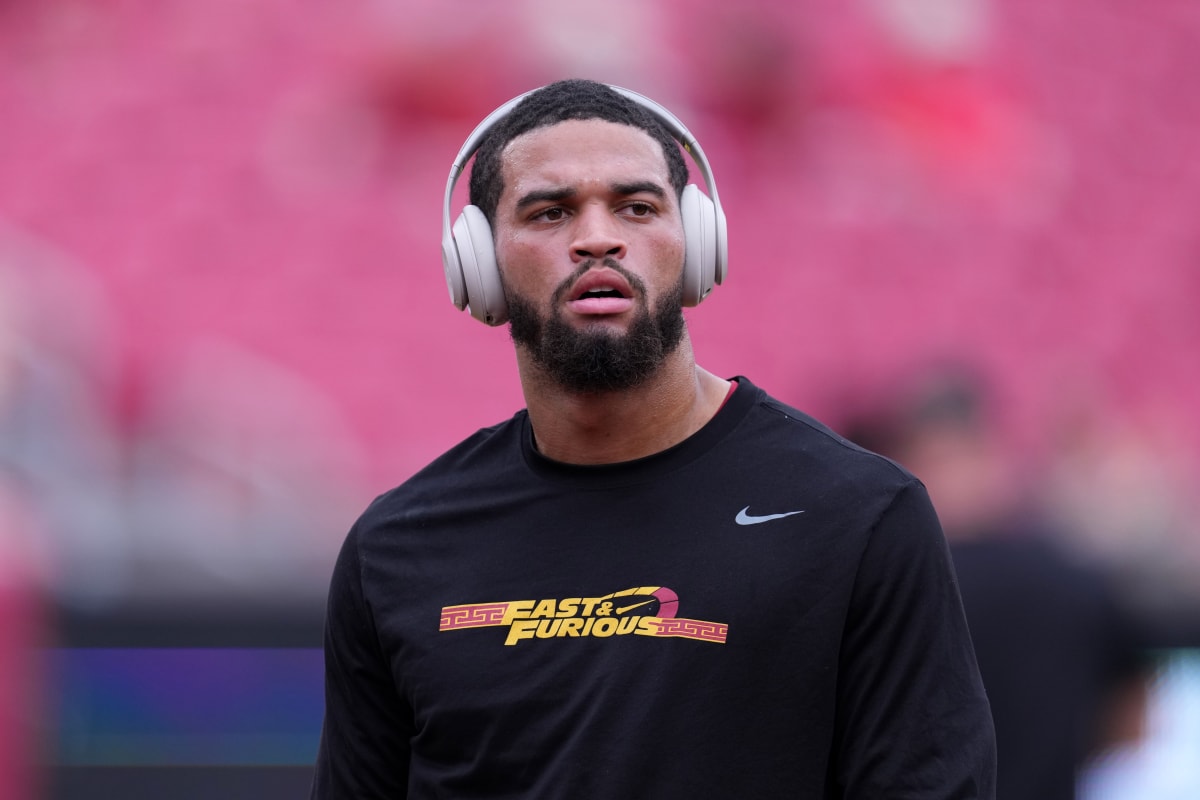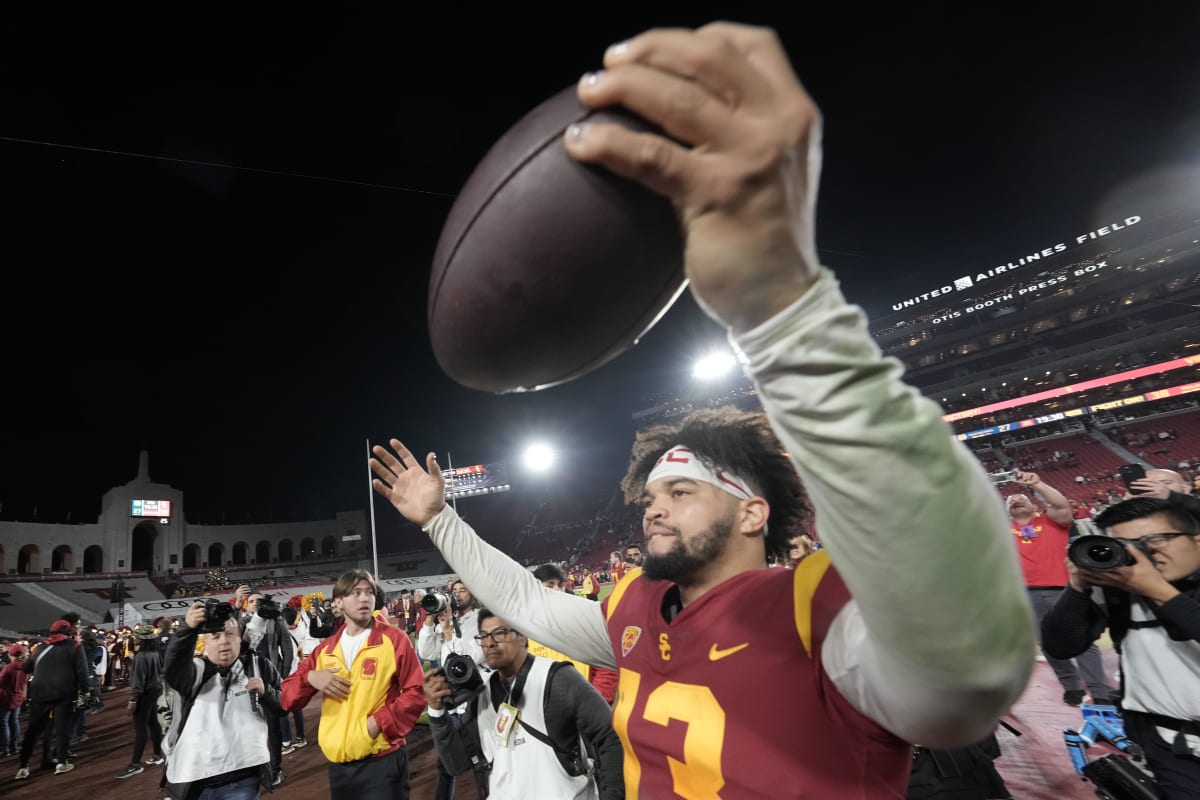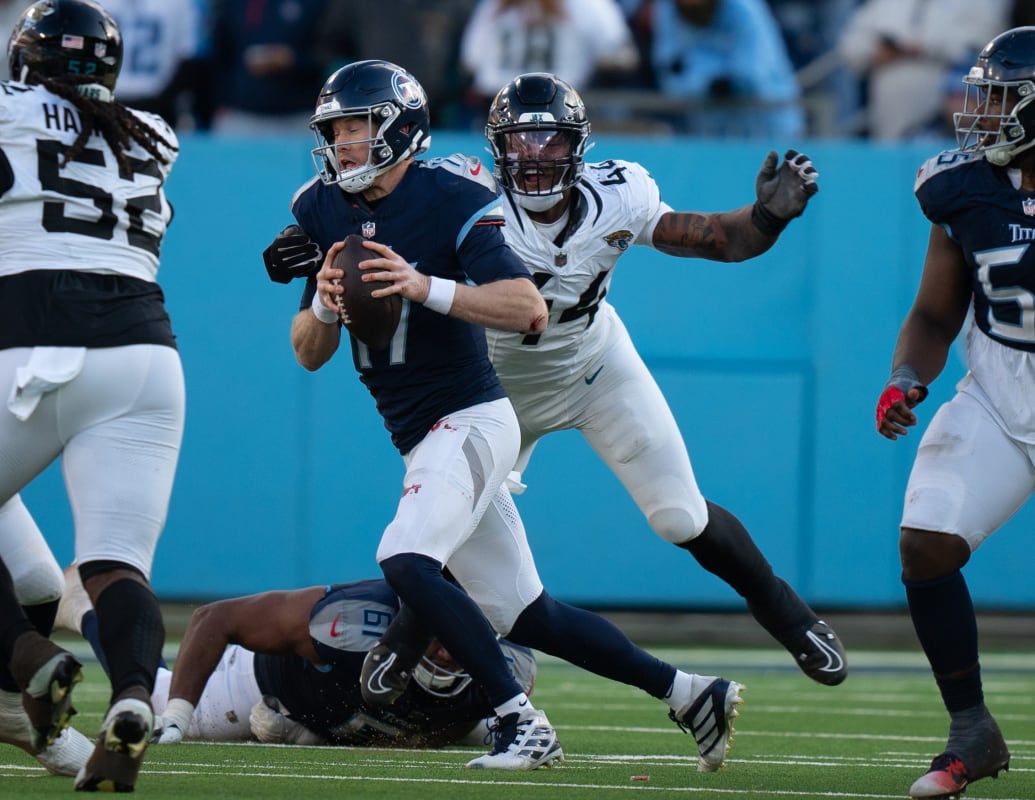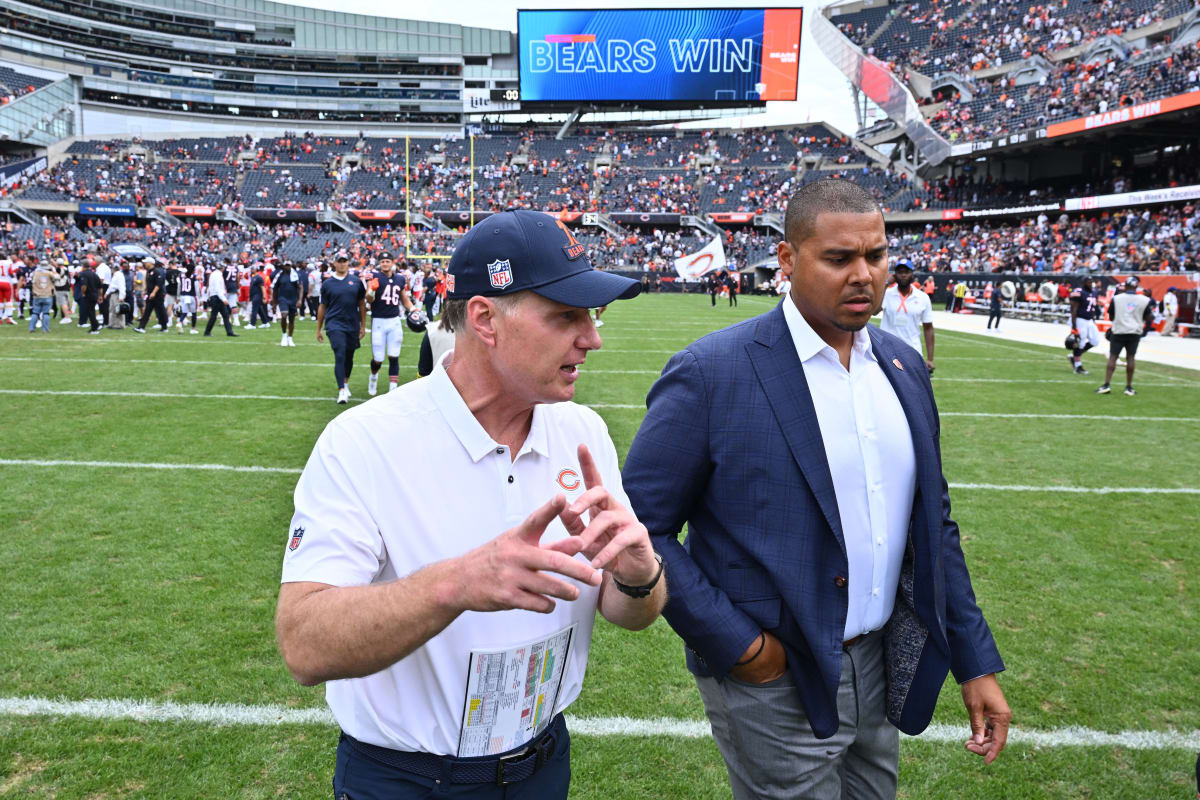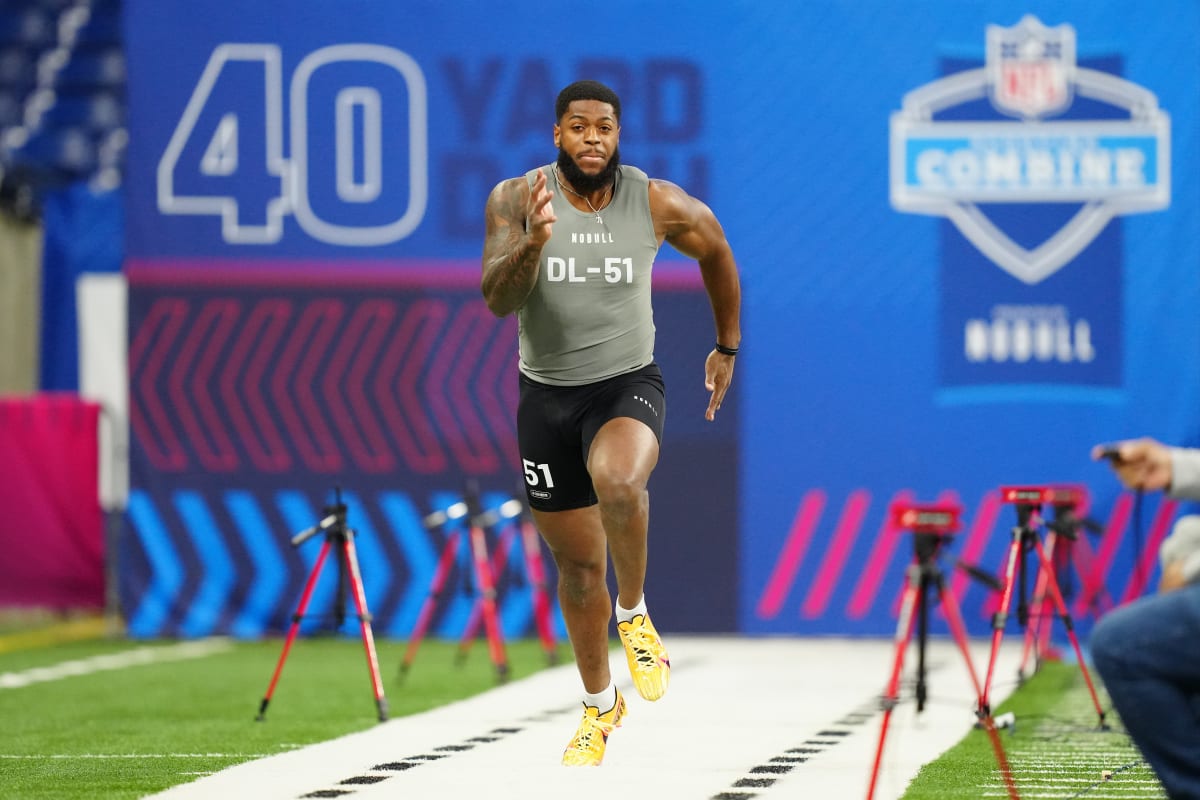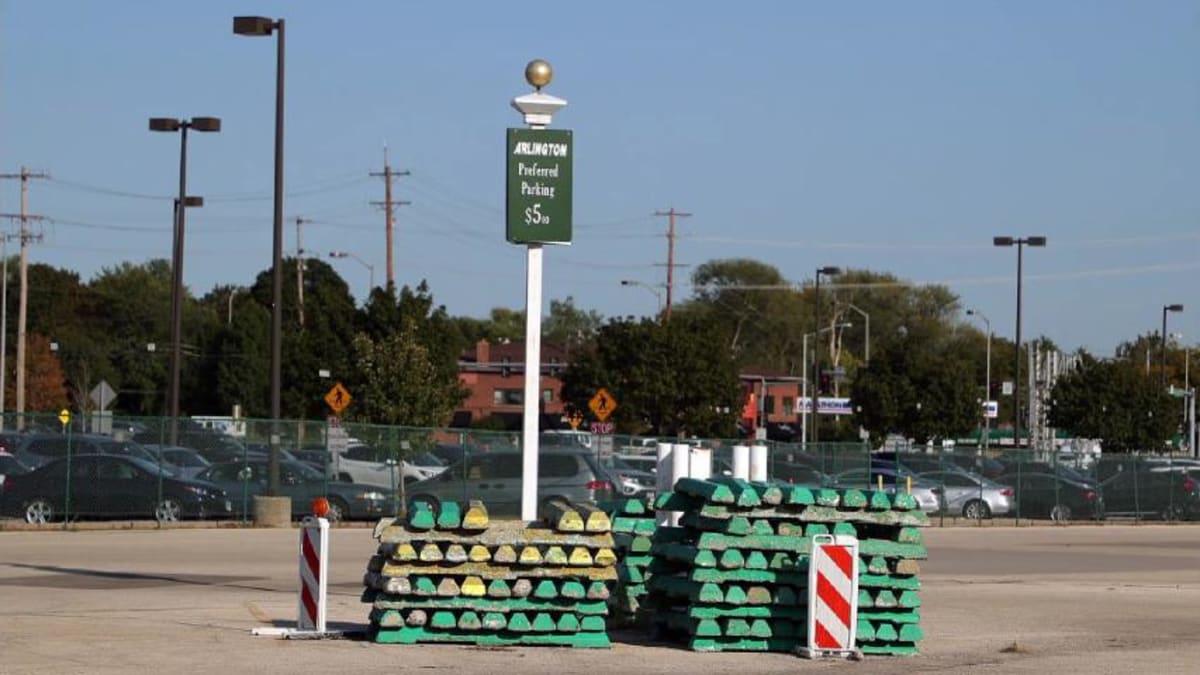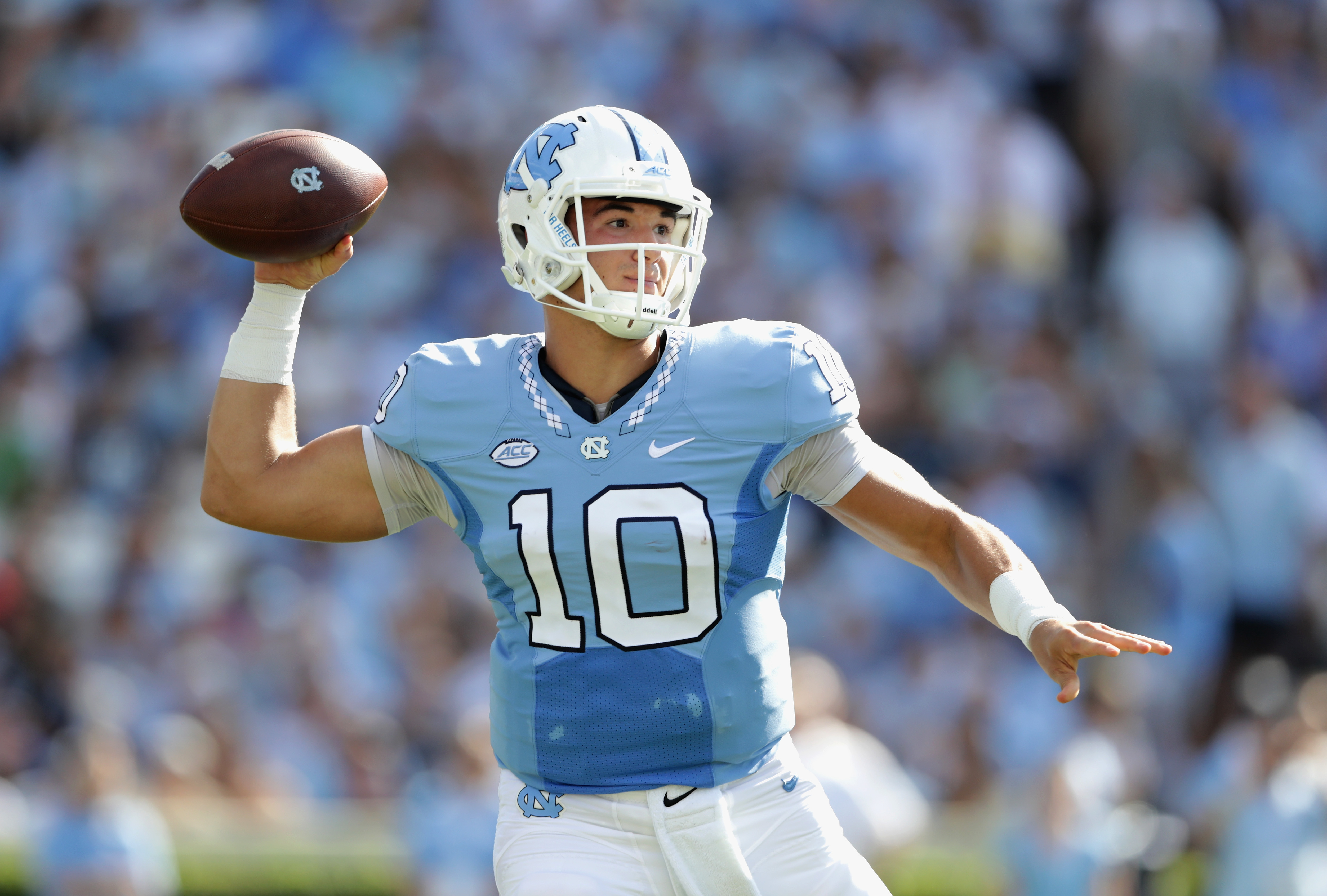
One thing that will never change in football is the importance of the quarterback position. Without a capable quarterback, you don’t have a team capable of winning the Super Bowl. Quarterbacks make coaches and general managers a lot of money, and they also get them fired very quickly. Miss on a first-round quarterback and your job is likely in jeopardy.
This year’s group of quarterbacks is especially polarizing. Many of them have the traits to become great NFL quarterbacks, but all of them possess significant flaws that make you worry. Unlike Carson Wentz last year, I don’t think any of them are ready to start Week 1, yet I expect each and every one of my top seven quarterbacks to get drafted higher than where I have them.
Hoge & Jahns Podcast: The Quarterbacks Episode
As usual, I wait until the later stages of the NFL Draft process to release my quarterback rankings as I try to soak in every piece of information and tape on these guys that I can. With that in mind, here are my top 10 quarterbacks for 2017:
1. Mitchell Trubisky, North Carolina (6-2 1/8, 222)
The knock on Trubisky is his lack of experience (only 13 college starts) and it shows at times. He struggled against defenses that were good at disguising coverages, relying on his primary target too often. Still, Trubisky left North Carolina with a very good 5-to-1 touchdown-to-interception ratio and there’s little doubt his raw skills translate to the NFL. He has a strong arm, quick release and moves his feet well in the pocket to avoid pressure. His mobility is underrated and he throws well on the run. Big time throws late in games against Pitt and Stanford tell me he can be a clutch quarterback in the NFL.
Where I would draft him: Mid-to-late first round. Trubisky would be best served to end up on a team that does not need to play him right away. He needs time to adjust to taking snaps under center, running a pro-style offense and reading more complex NFL defenses.
2. DeShaun Watson, Clemson (6-2, 1/2, 221)
There’s something to be said for being a winner, and that’s exactly what DeShaun Watson is — a winner. He’s an outstanding leader and teammate. He’s tough as nails and rarely gets rattled. Those are important qualities to have as a quarterback. Still, in the NFL, arm strength matters, and Watson’s arm is merely average by NFL standards. That, along with a habit of passes getting knocked down at the line of scrimmage, has me hesitant to put a first round grade on Watson. I think he can be a good NFL quarterback, I’m just not sure he’ll ever be a great NFL quarterback. There’s a ceiling here.
Where I would draft him: Early second round. Clemson was able to win because of Watson. In the NFL, I think you can win with Watson, but maybe not because of him. He will also be making a big jump to calling plays in the huddle with full-field reads and will need adequate time to adjust.
3. Patrick Mahomes, Texas Tech (6-2, 225)
The Brett Favre comparisons are legit. On one of the tapes I watched, Mahomes threw a pass left-handed. He’s simply a free-wheeler on the field. His mechanics are all over the place, he makes dangerous decisions and he’s way too eager to retreat backwards and leave the pocket to throw on the move. But my God can Mahomes throw the football — he probably has the best arm in this year’s draft. This is just a big boom-or-bust prospect. Can you reign him in and mold his raw talent into an legitimate NFL passer? The confidence and swagger pops off the tape, but Texas Tech’s offense makes it really hard to gauge how much Mahomes knows as a quarterback.
Where I would draft him: Second round. You’re either drafting one of the most fun quarterbacks to watch in the entire league or a guy who can’t put it together enough to trust as a starter.
4. DeShone Kizer, Notre Dame (6-4 1/4, 233)
It’s a little hard to explain, but I just get a Jay Cutler “feeling” every time I do my homework on Kizer. I love the size, I love the arm and I love the toughness, but there’s just something missing on the field. Kizer comes off as extremely smart when he’s talking football or drawing up plays on the whiteboard, but it doesn’t all come together when it’s time to perform. At times he makes outstanding, rare throws, but then there are other times when he’s simply terrible. He’s just not consistent enough. Why did Kizer get worse in 2016? Personnel excuses only take you so far (see: Cutler). Plus, while Kizer deserves credit for a good 2015 season, Notre Dame struggled in the red zone that year.
Where I would draft him: Late second round. There’s enough raw talent to work with, but when Brian Kelly (of all people) is saying you need “to grow in so many areas — not just on the field, but off the field,” that’s an enormous red flag.
5. Davis Webb, California (6-4 5/8, 229)
I soured on Webb a little bit after watching three Senior Bowl practices in person, but he responded with a strong game, which carries more weight. I remember watching Webb when he was a freshman at Texas Tech and thinking he was destined to be an NFL quarterback. Eventually he was beat out by Mahomes and had to transfer to Cal, where he played on a pretty bad football team. Webb has an outstanding arm and shows an ability to make proper reads and manipulate defenses when protected well. That said, his accuracy can be erratic, especially when he’s under pressure. Plus, he’s not nearly as mobile as my top four quarterbacks.
Where I would draft him: Third round. I actually won’t be surprised if Webb ends up having a longer career than Kizer, but I can’t stack them up next to each other and make an argument to draft Webb over Kizer on anything other than a gut feeling.
6. Brad Kaaya, Miami (6-3 7/8, 214)
I expected Kaaya to do more in 2016, but you have to think the coaching change and new offensive system had an impact. The arm strength is good enough, but he has a long release and isn’t nearly as mobile as you would think. I like that Kaaya has worked under center and his experience in Mark Richt’s pro-style offense will give him a small jump start at the NFL level.
Where I would draft him: Fourth round. Kaaya is smart and confident and will work well in an NFL quarterback room as a backup with traits that could eventually turn him into an adequate starter.
7. Nathan Peterman, Pittsburgh (6-2 1/2, 226)
I saw Peterman up close from the sidelines at the Pinstripe Bowl and never once thought that he looked like an NFL starter. My opinion did not change less than a month later at the Senior Bowl. He’s accurate, smart and a good decision-maker, but the arm strength is limited. He can’t drive the ball and many of the windows he threw through in college will be shut at the NFL level. I like that he operated in a pro-style offense at Pitt and he has enough mobility to make some plays with his feet, but Peterman is a system quarterback who will struggle to carry an NFL offense on his shoulders.
Where I would draft him: Fourth round. He’s Brian Hoyer. A good, above-average NFL backup who can fill-in and keep a season from going off the rails if the starter gets hurt.
8. Alek Torgenson, Penn (6-1 3/4, 215)
Torgenson is my sleeper quarterback prospect this year and I think he has a lot of upside as a late-round draft pick. With good enough size, a strong arm and quick release, Toregenson has the tools to play in the NFL. Of course, he’ll be making a big jump from the Ivy League and Penn’s offense was anything but a pro-style system. He ran a lot of zone-read and a big part of their offense was Torgenson’s ability to run.
Where I would draft him: Sixth round. Torgenson has practice squad written all over him, but he’s athletic with a good arm. If you stash him and let him develop for a couple of years, you might have something.
9. Joshua Dobbs, Tennessee (6-3 3/8, 216)
Dobbs beat out Peterman at Tennessee (which forced Peterman to transfer), but I have Dobbs ranked lower here because I like Peterman’s pro-style experience and I trust him more to take care of the football (Dobbs had 30 fumbles in college). Dobbs brings more of a running threat to the game, but his arm is just as limited. The Aerospace Engineering major gets a lot of credit for his academic smarts, but I watched Dobbs a lot at Tennessee and never viewed him as a legitimate NFL quarterback.
Where I would draft him: Sixth round. Dobbs would be a nice addition to any quarterback room, but I don’t think his traits translate to him being anything more than a backup at the next level.
10. C.J. Beathard (6-2 1/2, 219)
Beathard is a smart, tough quarterback who can operate an offense with short-to-intermediate throws in a pro-style system. His arm strength is limited and he’ll never be an NFL starter, but he’s worth bringing into training camp to see if he can be a dependable backup.
Where I would draft him: I wouldn’t. I’d try to sign him as a priority free agent to see if he’s worth keeping on the practice squad.
Adam Hoge covers the Chicago Bears for WGN Radio and WGNRadio.com. He also co-hosts The Beat, weekends on 720 WGN. Follow him on Twitter at @AdamHoge.

